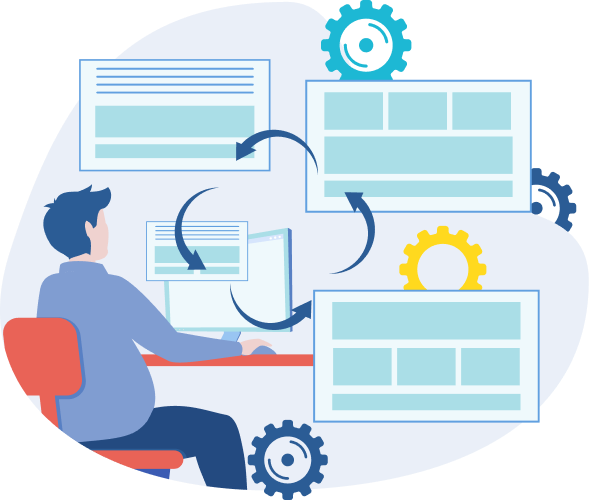×
Roadmap Identification: We analyze your project, find out what you need, choose the best tool stack and infrastructure that suit your needs, and create a roadmap by assigning the teams for them to deliver items from the list. We continue to improve this roadmap and deliver items with you throughout this entire process.
Technical Onboarding: To boost the quality of an application, testing it on both manual and automated side is a must. We analyze daily routine of each member of the testing team with full-day sessions to come up with practical solutions, and quick-wins and find out possible bottlenecks, and obstacles.
We build test automation project infrastructure and create project standards such as naming conventions, coding rules, project scopes, approaches to be applied in the projects, the libraries, and 3rd party integrations. Our services are not just about developing test automation scenarios, they are about enabling the whole team to write automation with pair and hands-on coding sessions. We also believe that documentation is an integral part of the entire process.
Culture Expansion: What differentiates kloia from other consultancy companies is our desire to pass on the knowledge and culture of the test to the members of your company. Our aim is to leave you in a self-contained state at the end of our service.

Testing activities both manual and automated boost your application’s quality. As kloians, we run a full-day session with each qa test team member to observe their daily working routine to detect obstacles and needs to come up with practical solutions about them. This session shows us how the qa testing team works in a day and figures out ways to create an easier and more efficient daily working routine for the qa test team members.
At the same time, if you have a test automation project, we run a technical session to improve it. These technical sessions aim to detect whether your automation project has an improvement point at code-level or application-level.
Key points of our assessment are:
For each customer, challenges and bottlenecks differ. Thus, every project and every product requires a unique roadmap to tackle problems. Individual parts of this map can be seen below:
Strategy Definition
Technical Decision
Development

According to the assessment, we define short-term (1-3 months), mid-term (3-6 months) and long-term (>12 months) roadmaps. The analysis step provides us to have an overview of your projects and development process, and also enables us to determine quick win points. Depending on these points, we define roadmap items by prioritization and measure the progress of the roadmap.